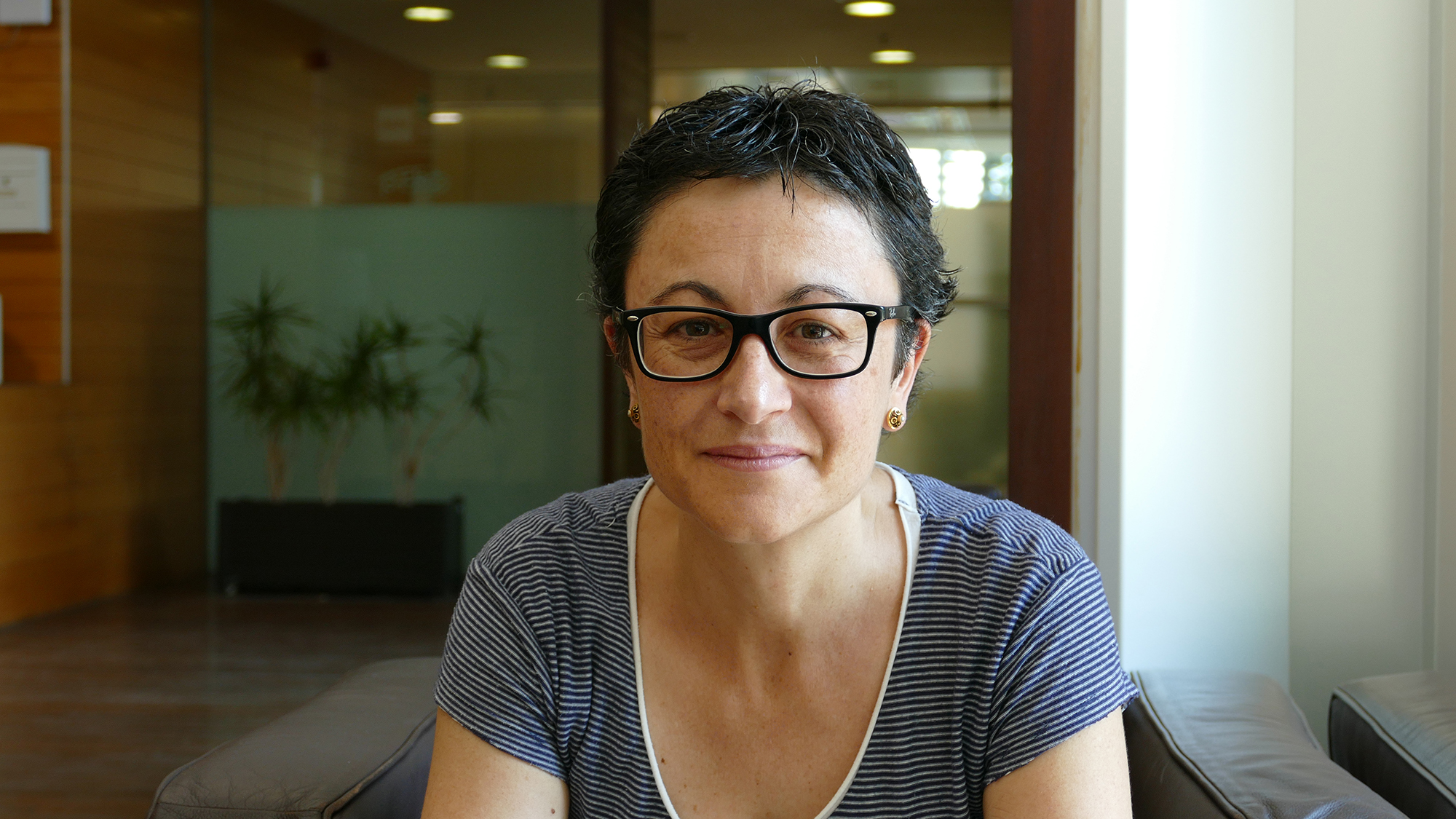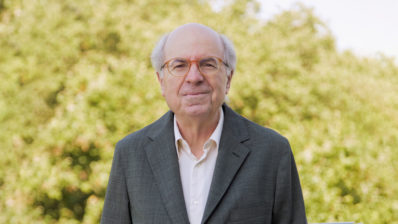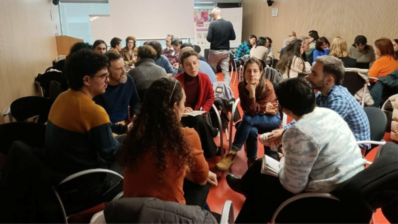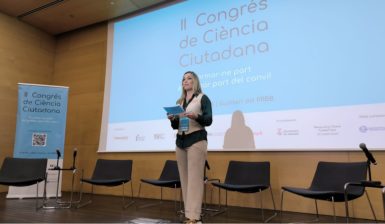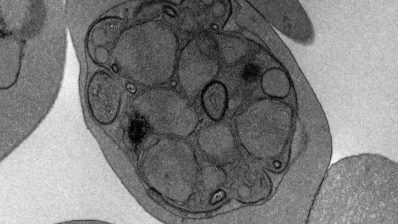From psychology to epidemiology and from clinical practice to research management, with some clinical trials management in between. Such has been the professional career of Joana Porcel, currently in charge of research management at the Barcelona Institute for Global Health (ISGlobal).
What did you study?
I studied psychology at the University of Barcelona (UB). During my degree I wondered wether to work in the field of psychology or publicity, but I finally opted for neuropsychology; behaviour and brain. And I am very glad of the decision taken.
How did you get into the field of neuropsychology?
When I was finishing my degree, I became a neuropsychology trainee at the university, but I was not that sure if I really wanted to do research... I decided to try if I liked this scientific field that much. Thanks to a friend of mine, I joined the Catalan Association of Traumatic Brain Injury. It was in 1995, just after having finished my degree. I was working for free, helping people that had sufered from traumatisms due to a traffic accident to become more autonomous.
Do you remember any particular case?
One of my first patients was a boy with a heavy loss of memory and unable to memorize new things. Once he left my office, he no longer remembered a thing, he didn’t recognize us… We spent 6 months training him so he could follow a color code in order to phone his mother! He couldn’t even remember to drink water; we managed to do it by putting glasses of water next to a series of alarm clocks that sounded every so often.
And these experiences made you decide to get into research?
Yes, after spending one year in the Association, in 1996, I decided to start my PhD in neuropsychology. While I was doing my PhD at the UB, I was also seeing patients at the Multiple Sclerosis Unit, in Vall d’Hebron Hospital. I started without a grant, but from 1999 the Association hired me (I had been volunteering there for 4 years). To make ends meet, I worked as administrative staff every so often.
Wow!
Suddenly, I had to manage quite a lot of things. I worked in the hospital during the morning and, in the afternoon, I worked in the Association. I was doing my PhD basically on weekends! Moreover, in 2002 my husband and I started with the adoption process of our daughter. So I decided to leave the Association in order to finish my PhD, which I finally presented in 2004. I continued working in the hospital until 2006.
What did you do next?
I friend of mine was working at Pzifer and she insisted a lot… So I decided to give it a chance. I went from having a clinical psychology assistance job to one of management and implementation of clinical trials in a huge pharmaceutical company! I spent there 8 months. It was like a management masters for me, since I learned a lot. But it was quite a routine work. Then, I started working at a Contract Research Organisation (CRO) where the studies where more local, but the job was more creative; we had to do everything ourselves, from proposing an idea of study, designing the protocol, collecting data, thinking about an acronym and designing the logo, passing the ethics committees, contacting doctors to participate, writing articles… The topics were also very varied; epilepsy, diabetes, cardio, etc. I wrote articles in many different disciplines!
Joana Porcel has done research, visited patients in a hospital, worked in a pharmaceutical company and at a CRO and is currently leading the projects office at ISGlobal.
How did you end up coming to ISGlobal and what was your role?
I saw an ad on La Vanguardia newspaper and I thought, why not? I had to help set up the center’s (then called CREAL) projects office. Until then, European projects had been coordinated from the Hospital del Mar Medical Research Institute (IMIM), since CREAL was born from IMIM research groups. Since I was alone and could not do much, I became involved in all the cross-cutting topics of the center; scientific policies, strategic planning, bibliometry, indicators, scientific committees… And we gradually build up the office.
When did the office begin to work?
In 2012, we got a grant so we could hire a technician and we started already managing the research calls from our office. Then, in 2013, we started the ISGlobal alliance, in which CREAL and CRESIB merged, so I also paticipated in the entire merging process. In 2016, we joined formally, but the first year and a half we were relocating roles, harmonizing processes and different ways of working … It was a great change, we went from being a center of 150 people to one of 400!
And the projects office also changed…
By 2016, after doing a balance of the new needs, we created the Projects Unit, which I lead. It comprises two different offices:
- the Grants Office, responsible for identifying funding, helping group leaders to apply for scholarships, manage delivery and negotiation, execute the budget and control spending, justify it and audit it if needed.
- the Coordination and Research Management Office, which is more transversal, and supports other areas. We coordinate the development of the strategic plan and the institutional and scientific policies on good practices, ethics and data protection, quality control, mentoring programs, etc.
On the other hand, at ISGlobal there is also a strong commitment to education (we coordinate two master’s degrees), transfer, advocacy,… From the office we also help to coordinate the research part with these other aspects.
How has your career helped you in your current job?
I have a scientific side – I understand science and what it means to apply for a scholarship – and I also have a lot of administrative experience. This allows me to link two worlds that usually go separately, which I think is a mistake. Administration on its own does not make sense, it must be connected to the activity that is being managed.
What is the best part of your job?
Working with excellent people, not only at the professional level – international leaders in their areas -, but also in the personal one. And the continuous exposure to new ‘inputs’, being able to talk to people from different cultures, different areas... In that sense, being at the Barcelona Biomedical Research Park (PRBB) is a plus.
And the biggest challenge?
Maintaining the balance. We have projects with different timings, there are many things going on at once and everything is going very fast… And I need time to stop and think! On top of it, I usually get accelerated; it’s my weak point! So part of my effort is directed towards stopping, thinking and planning, as it is the way to make decisions from a more strategic vision.


